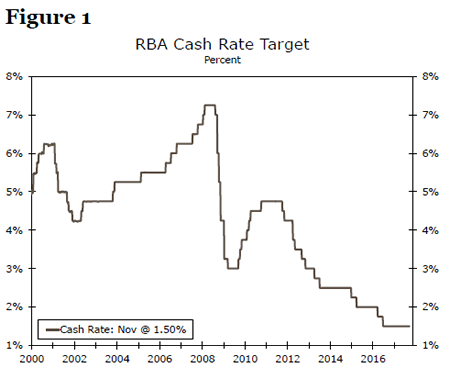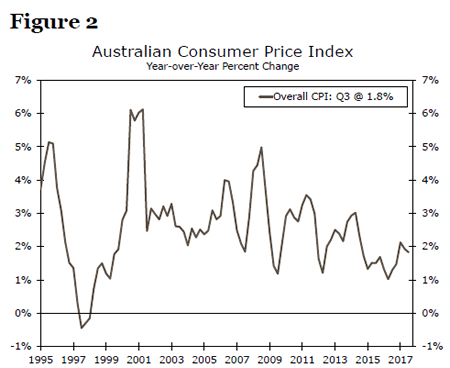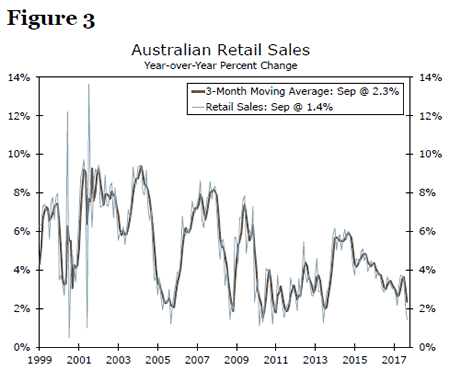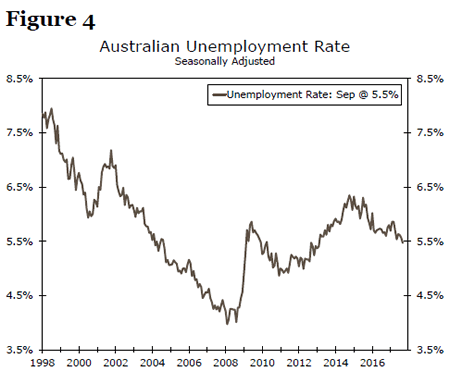An evolving theme in global financial markets in the second half of 2017 is that many of the world’s central banks are in various stages of removing ultra-accommodative monetary policies. In separate reports over the past week we discuss the varying prospects at the European Central Bank, the Bank of England and the Bank of Korea – all these reports are available on our website.
There are a few holdouts. At its meeting at the end of October, policymakers at the Bank of Japan made it clear that they have no intention to dial back the comprehensive set of accommodative monetary policy measures in place in Japan. Another central bank that is bucking the trend is the Reserve Bank of Australia (RBA).

At its meeting in Sydney earlier this week, the RBA held its cash rate unchanged at 1.50 percent where it has been since August 2016. It was no secret that policymakers would stand pat. Every one of the 27 economists surveyed by Bloomberg correctly anticipated that the RBA would remain on hold. The accompanying statement said that "inflation was likely to remain low for some time," suggesting that the RBA will remain on hold.

With the unique distinction of having avoided a recession during the global slowdown in 2009, the rate environment in Australia has been higher than other parts of the developed world for some time. That is likely to change. If the Federal Reserve raises rates at its December meeting, as we expect it will, the fed funds rate will be the same as the RBA’s cash rate for first time since 2001.
We wrote in April that the RBA was in a Catch-22, because after cutting rates to stimulate growth, households had taken on too much debt as low interest rates helped fuel a sharp rise in house prices which could hold back consumption. The trouble is that additional rate cuts risks even more piling-on of debt.
In the latest manifestation of this dilemma, RBA Governor Philip Lowe said this week that a "continuing source of uncertainty is the outlook for household consumption." This was evident in the September retail sales figure released last week, which showed no change. This followed a 0.6 percent monthly decline in the prior month which had most analysts looking for a bounce.

Our currency strategists think the negative influences of monetary policy dynamics on the Aussie dollar will be outweighed by the positive influences from the strengthening in commodity prices and, on that basis, they anticipate a modestly stronger Australian dollar over time. This makes the vexing challenges for the RBA even harder, as any foreign exchange pass-through effect would put downward pressure on already-low inflation.
The upside for Australia is that the labor market is firming and the unemployment rate has been trending lower over the past year, although that has not yet translated into significant wage gains. A firming in global growth may also translate into stronger exports for the resource-rich Australian economy.

Stuck between needing to stimulate the economy through lower rates yet not wanting to drive household debt even higher, we expect the RBA to remain on hold well into 2018.
